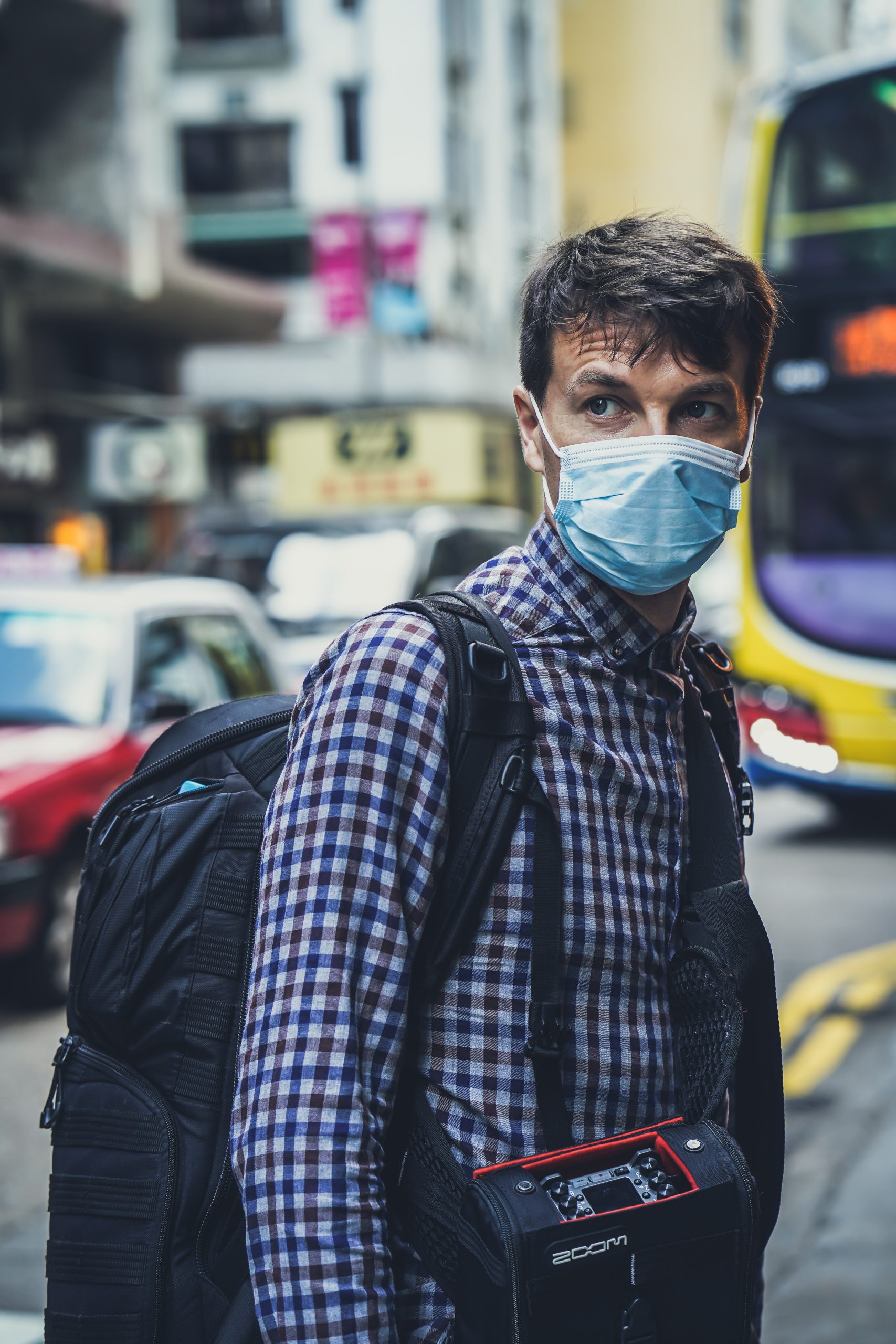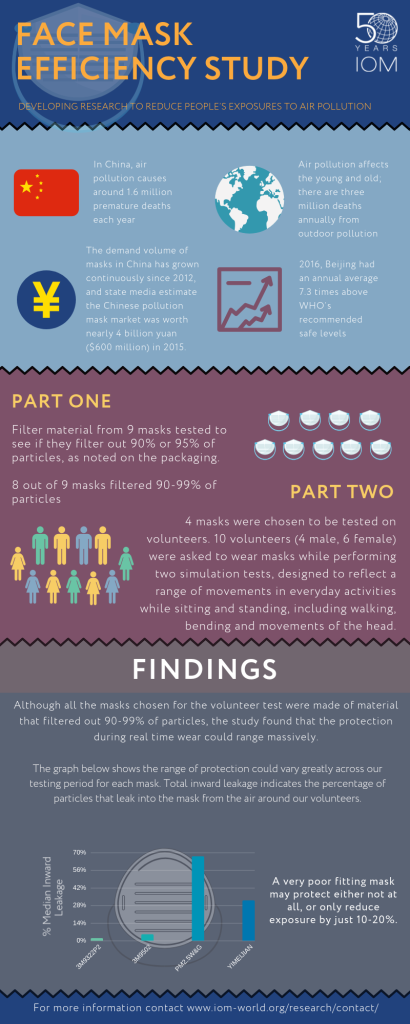
Will a mask protect me during the Covid-19 pandemic?
Covid-19
Facemasks


Covid-19
Facemasks
IOM working with Professor Ewan B Macdonald OBE from the University of Glasgow and Chair of the UK Academic Forum for Occupational Health have issued a statement that supports wider use of face coverings by everyone in the community during the COVID-19 pandemic.
Wearing of face coverings in public, particularly in well-frequented locations such as shops and public transport, is recommended in addition to current social distancing and hand-washing instructions. Face coverings can help reduce transmission of the virus in the public, especially because healthy people may be infected without knowing and be able to spread the virus in the air.
Should I wear a mask?
If you are going out, wearing a mask helps prevent the virus from getting into the air if you have it. It may give you some protection as well. This means anyone with symptoms should wear a mask. Evidence suggests that people with no symptoms could have the virus and spread it, therefore to reduce the risk in the community, it is advisable that everyone going out wear a mask or at least some sort of nose and mouth covering (see next question). Lower community transmission of the virus means that fewer people will get it and thus be able to spread it. It is particularly important for health care workers or anyone providing care to others, especially vulnerable people, to wear a medical mask or a respirator.
What kind of mask?
A surgical or medical procedure mask will be effective to prevent the spread of virus. It will confer some protection to the user as well, but because it is not designed to be tight-fitting air can still leak in. Some studies show varying degrees of ability of different commonly found cloth materials (e.g. cotton t-shirt or sweatshirt, tea towel) at reducing aerosol penetration, but these are all much lower in effectiveness than a medical mask or a respirator. They also will not fit very well to the face, and may become even less effective when they become damp. However, although these are not front line forms of protection, they are viable alternatives for those in the general population given shortages of respirators and medical masks. They are not alternatives for staying at home, social distancing, or handwashing.
The best protection will come from an FFP3 respirator, but only if you have been fitted for one by a fit test professional. This because no matter how effective the material the respirator is at filtering out virus particles, if it doesn’t have a proper seal with your face, air can leak in. We have found that even an FFP3 respirator can let in more than 50% of aerosols if it doesn’t fit properly. Moving your head and talking can disturb the fit, as can repeatedly taking off and putting the mask back on. It is best to leave FFP3 respirators for care workers, as they will be on the frontlines and repeatedly exposed to the highest amount of virus in comparison to the rest of us. Note that a respirator with an exhalation valve should not be placed on a patient or person with infection, as this would allow the potential spread of infected aerosol from the patient.
Will I still need to social distance and wash my hands if I wear a mask?
Yes! Masks are a last line of defence. This is partly because people may not wear a mask correctly, and often people do not wear them consistently. Don’t remove it to talk to someone, or because it is uncomfortable, or wear it around your mouth only or your chin or forehead. Don’t move it and then put it back on. Once you put a mask on, you should not touch it, and you should not remove it until you are back home. You should remove it only by the straps and dispose of it. You still should stay at home, social distance, and wash your hands. This is because masks are not 100% effective and because you still touch surfaces which may have virus on them.
What if I’m not in a confined space, should I still wear a mask?
If you are not indoors (e.g. doing your grocery shopping, in public transport) you should still wear a mask. Anytime you may encounter people you should wear one. If you are alone out in nature or your garden with no one else nearby, you probably don’t need to wear one.
